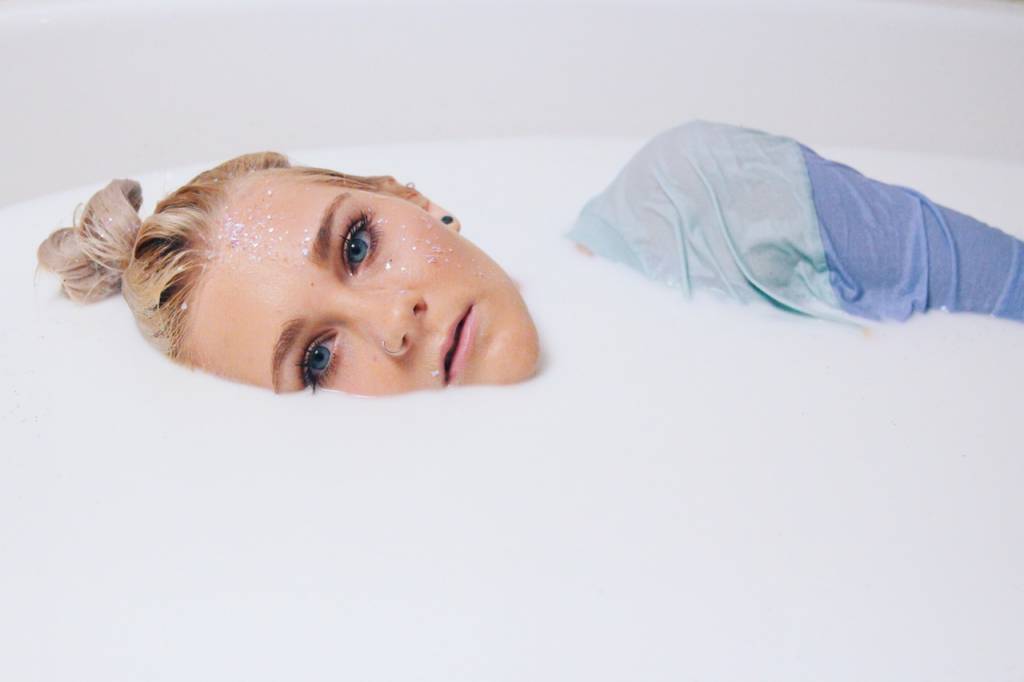For attractive lips, speak words of kindness.
For lovely eyes, seek out the good in people.
For a slim figure, share your food with the hungry.
For beautiful hair, let a child run his fingers through it once a day.
For poise, walk with the knowledge you’ll never walk alone.
― Sam Levenson, In One Era & Out the Other
We kind of got lost, didn’t we? Overwhelmed with so many expectations put upon us, we’ve forgotten to take a deep look into ourselves and cherish all the beauty within. Suddenly, with no warning whatsoever, our primary concern became the product to put on our faces instead of a movie to watch, book to read, a person to hug. What’s even worse, we’ve started trusting all the internet-induced beauty and skincare advice so intensely that we’ve totally neglected common sense… hence, the blemishes. Yes, just as I have – you too have fallen victim to the bad advice spread around. Let’s break that shell open, shall we? Absolutely.
Here is a breakdown of beauty advice we get bombed with – the advice that may not be as true/efficient as they’re presented. And btw, we’ve consulted high-end dermatologists for opinion and advice:
All-natural products are safe for your skin
No, actually, they’re not. Just like other chemicals, natural products too can be dangerous. Your favorite organic products fall into this category too, you know? Some of them are safe, while others are not. In many cases, despite the propaganda revolving around “all-natural” products, there is often too much inadequate data for us to be able to base the recommendations on. Also, despite having multiple companies advertising their products as the safest, mildest and the best option for people prone to developing skin irritation or rashes, truth is – plain petroleum jelly is probably the safest product to use.
Eating greasy food will give you greasy skin
There might be some audio and visual logic behind it (you hear “grease”, you think “grease”, you immediately link it to greasy skin), but in reality – there is none.
Just because you indulge in some greasy food, it does not mean your skin will produce more oil. As Sejal Shah, M.D., board-certified dermatologist and founder of Smarter Skin Dermatology observes “there is evidence that high-glycemic foods can cause acne because these types of foods cause an insulin spike that results in a hormonal cascade, which ultimately increases the production of skin oils and acne. Certain dairy products have also been linked to acne — more research is needed, but hormones in these dairy products may act as triggers”.
If you want to stay on the safe side and not worry about your potential dietary triggers just eliminate the potential trigger from your diet for some time (a month, maybe two) and see what happens.
Facial steams are a good way to clear pores
Well, in case you didn’t know, not only can steam rooms be fungus and mold traps, but steaming itself is actually very harsh on the skin as it breaks the capillaries and can exacerbate rosacea.
Looking to clear pores? Buy retinol and glycolic acid pads, as recommended by Gervaise Gerstner, M.D., assistant clinical professor of dermatology at Mount Sinai Hospital in New York City. Simple.
You should exfoliate daily for clear skin
Wrong! “Over-exfoliating the skin can strip skin cells not ready to be removed”, says Jessica Weiser, M.D., board-certified dermatologist at the New York Dermatology Group. What is more, exfoliating everyday can trigger irritation, redness, and inflammation, lead to raw skin and skin infections. Further, as a result of overactive oil gland production, you may suffer acne!
Exfoliation is indeed an integral part of a good skin care routine but it shouldn’t be done aggressively. Exfoliate no more than twice a week to keep the skin’s cycle healthy. If your skin is sensitive, keep it to once a week. Use exfoliating serums like AHAS from Ultraceuticals that are designed to reveal skin clarity and refine texture. They’re suitable for all skin types.
Let wounds scab over to help them heal
“The truth is scabs slow wound healing and lead to increased scarring”, explains Christopher Bunick, M.D., assistant professor in the Yale Department of Dermatology.
Advertisement
The best remedy is to have the skin covered with Vaseline, since moist wounds allow for faster healing with less scarring.
There! And this is just the tip of an iceberg. Next time you go through your Instagram feed or Google your favorite beauty bloggers, think twice before trying out a new beauty advice. Okay?











